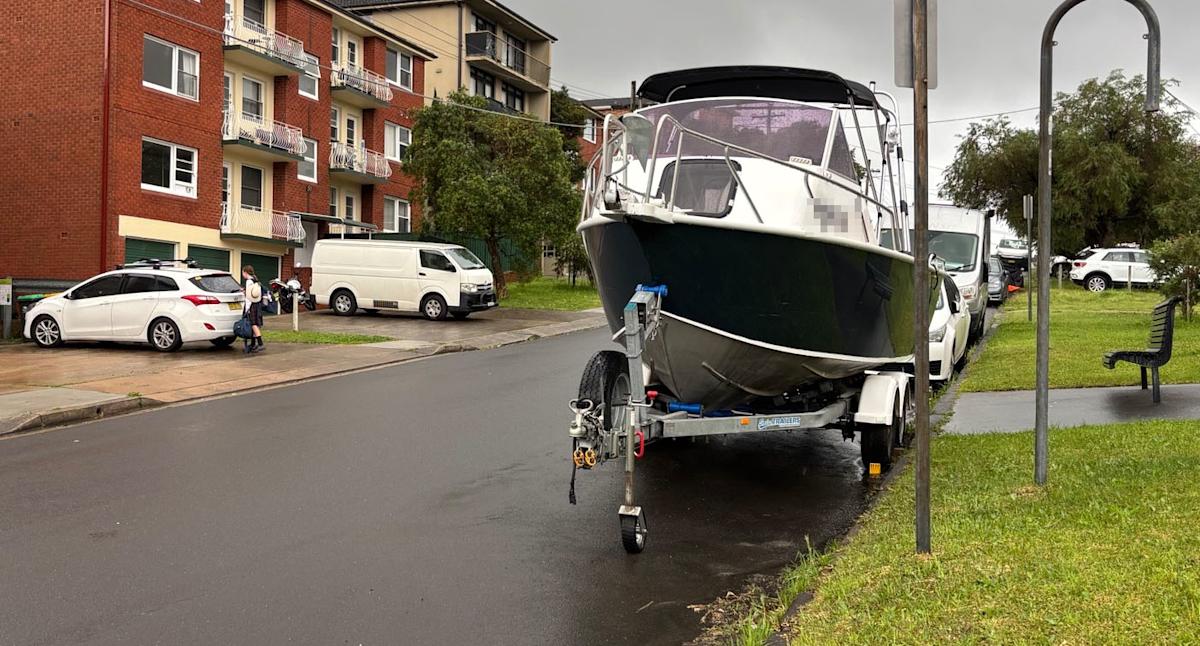An ‘eyesore’ in the local neighbourhood has left one homeowner searching for answers. · Yahoo Finance Australia
Welcome to Yahoo Finance’s legal column where lawyers Alison and Jillian Barrett from Maurice Blackburn tackle problems everyday Aussies face — whether it be consumer, property, money matters impacting relationships or work. This week, a resident is seeking to understand how to handle a questionable parking situation.
Question
“I live in a suburban area and there’s always a boat parked on the corner of my street in NSW. It’s in a legal parking zone with no restrictions. Firstly, I am selling my house and it’s one door down but is just a complete eyesore. I’ve talked to my real estate agent and she said that buyers have come in and commented on it being there. They’ve even said it could devalue my property. Secondly, it’s so large that when I cross the road it obscures oncoming traffic so I can’t see when it’s safe to cross the road. Instead I have to walk into the road to see if any vehicles are coming. Is there a restriction on the size of boats that park on the side of the road? At one point it also had a cover on it that billowed in the wind and would further obscure the view of oncoming traffic. Thankfully that has been taken off or it finally blew away but sadly the boat remains. So not only could this cost me money but it’s unsafe. I have no idea if the boat owner lives nearby or if they’re just using my street as a convenient parking spot. It’s really annoying and ruins the look of the area. What can I do?” Pia, Sydney.
Answer
We understand this would be very frustrating.
If you know the owner of the boat trailer, you should firstly have a conversation with them and explain that you’re selling your house and the real estate agent has commented on the boat being an eyesore.
They may be willing to move it for the period you’re selling your home which would be a simple solution to the problem.
The NSW Government passed legislation in 2022, the Public Spaces (Unattended Property) Act, this means that boat trailers (even if registered) must be moved at least every 28 days.
It’s not enough that it’s moved one metre – the boat trailer needs to be moved at least as far as a different block section of the same street (ie past an intersection).
If the boat is not moved, then it can be impounded.
However, the boat trailer won’t be impounded if it is parked on a road in accordance with an official resident’s parking permit that applies to the boat trailer, and is displayed on it.
You should have a look on the boat trailer to determine if they have a resident’s permit.
Before impounding the boat and trailer, the owner needs to be given at least 15 days’ notice that it will be impounded if it isn’t moved.
Do you have a matter you want resolved? Contact yahoo.finance.au@yahooinc.com
Alison and Jillian Barrett are Principal Lawyers at Australia’s leading plaintiff law firm, Maurice Blackburn. · William Gordon Photography
As such, if the owner does not agree to move the boat trailer, you should make a complaint to local council.
You’ll need to provide them with the exact location, details of the vehicle (such as make, model and colour), and the registration plate number. Photographs of the boat trailer remaining in the same location and obstructing visibility could assist.
Unfortunately, this won’t be an immediate fix as council will need to satisfy themselves that the boat trailer has been in the same location for 28 days, and then provide at least 15 days notice.
In the meantime, you can try to lobby your local council to introduce parking restrictions on your street, for example limiting the permitted time to 2-4 hours during the day – and unlimited overnight – unless a resident parking permit is displayed.
This legal information is general in nature and should not be regarded as specific legal advice. If you need legal advice, you should consult a solicitor.

